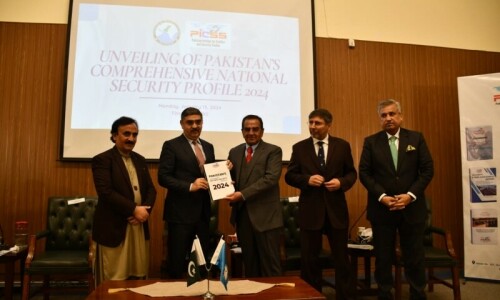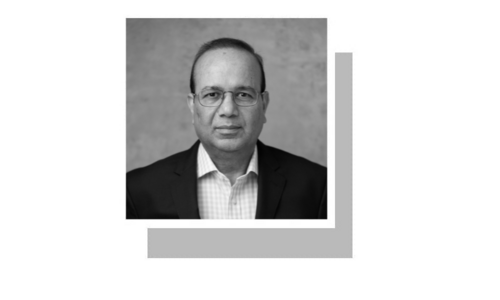IT is rare for high officials in Pakistan to publicly criticise ‘friendly’ and ‘brotherly’ countries over foreign policy differences. However, Foreign Minister Shah Mehmood Qureshi’s recent blunt criticism of the Organisation of Islamic Cooperation — in fact a thinly veiled critique of Saudi Arabia — has raised eyebrows.
Speaking to a TV channel recently, Mr Qureshi expressed his frustration with the multinational bloc of Muslim states, which is headquartered in and largely controlled by Saudi Arabia. He “respectfully” told the OIC to convene a Council of Foreign Ministers over the burning Kashmir issue, or else Pakistan would “call a meeting of the Islamic countries that are ready to stand with us on ... Kashmir”. The foreign minister added that Pakistan pulled out of December’s Kuala Lumpur Summit on a Saudi “request” but now it expected Riyadh to “show leadership on this issue”.
The fact that this reflects state policy and not just the foreign minister’s personal feelings was reiterated by the Foreign Office on Thursday. The FO spokesperson said Pakistan expected “forward movement” from the OIC on the Kashmir issue, though she also highlighted the “fraternal relations” between Islamabad and Riyadh.
It is a fact that no past government in this country has ever criticised the Saudis in this manner. The long-standing economic, political and military ties between the two countries go back decades, even though the relationship has been tilted in Riyadh’s favour. However, it appears that the Saudis’ lack of interest in resolving the Kashmir dispute has touched a raw nerve in ruling circles, and the government expects our Arab brothers to do more to help end the suffering of the India-held region.
This paper has long pointed out that the OIC has become an antiquated talk shop, which does little of substance to address the key issues of the Muslim world, though the state has always contested this view. Now it appears the ruling elite has come round to the fact that playing second fiddle to Riyadh won’t do; Pakistan must explain its priorities — “our own sensitivities” as Mr Qureshi quaintly put it— in a clear and frank fashion.
While this country has always spoken up for Palestine and Kashmir, many of our Arab friends have scrambled to improve or establish ties with India and Israel.
Perhaps the prime minister needs to explain in detail the road map that Pakistan now intends to follow. As it is, there are several geostrategic blocs in the Muslim world; the Gulf Arabs and Egypt are aligned with the US; Qatar and Turkey are charting their own course, while Iran, Syria and the Hezbollah in Lebanon form yet another axis.
Does Pakistan intend to ally with any of these formations, or does it aim to create a new bloc with like-minded states? Foreign policy goals must be clear and must ensure that Pakistan takes a moral stand, while not annoying our friends and benefactors.
Published in Dawn, August 8th, 2020













































